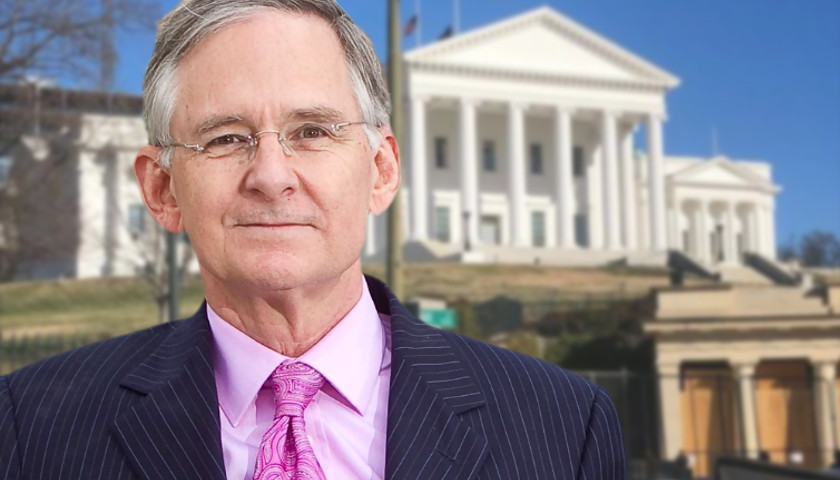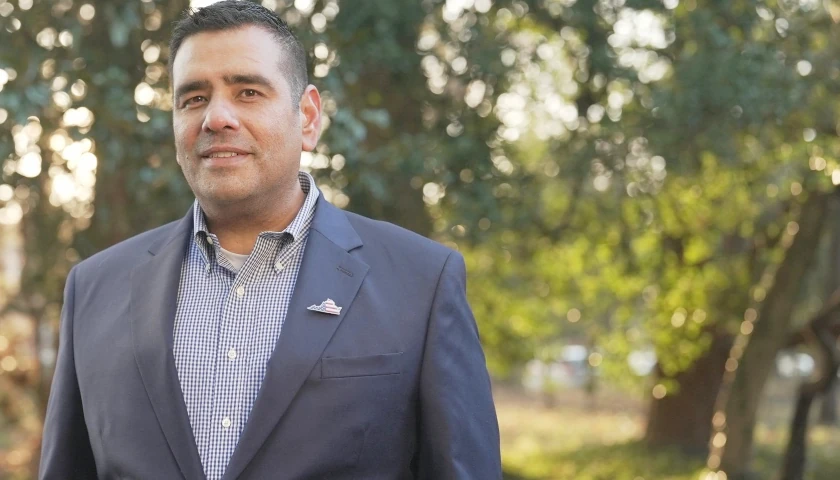The Virginia General Assembly considered over a dozen constitutional amendments in its two chambers this session; and seven of them have been passed in either the House or the Senate.
Last week, Senate Minority Leader Thomas Norment (R-James City) (pictured above) criticized the high number.
“I recognize that times change,” he said on the Senate floor. “I recognize that Virginia has changed and I recognize that there is a new cadre of legislators who have a different perspective on what the policies of the commonwealth should be.”
Norment added, “I realize that some of them are laudable and some need to be done, but this really is just bordering on absurdity.”
To amend the constitution, two separate General Assemblies must pass the same amendment, which then goes to a public vote.
Norment’s Press Secretary Jeff Ryer told The Virginia Star that could lead to a large number of amendments appearing on the ballot in an upcoming election. He said there have been years with two or three amendments on the ballot. “Amendments crowd the ballot, because unlike candidates, they have to have an explanation on the ballot.”
Ryer said even if the amendments are passed this year, that doesn’t mean all seven will appear on a ballot. He said, “It has happened before where one house or the other came forward with several. And then usually that year or the second year they get winnowed down. But we’ll see. This process is a two-session process.”
The amendments that have passed in at least one chamber are:
HJ 555 – Automatic Restoration of Felon Voting Rights
Sponsored by House Majority Leader Charniele Herring (D-Alexandria), this bill would automatically restore felons’ right to vote once their prison sentence has been served.
“This bill replaces an old system of felon disenfranchisement with automatic restoration of political rights,” Herring said in subcommittee. “The felon disenfranchisement in Virginia has a racist Jim Crow origin and was intentional inserted into the 1902 Virginia Constitutional Convention to disenfranchise as many black voters as possible. Felon disenfranchisement disproportionately affects communities of color, especially black communities.”
The bill has passed the House.
SJ 272 – Redefine Voting Rights in Virginia
This bill is similar to HJ 555. It would effectively restore felon voting rights after the felon was released. However, the language of the bill is different and adds a fundamental right to vote for qualified voters, saying that voters convicted of a felony are only disqualified while they are imprisoned. It also further clarifies language about how voters can be legally declared mentally incompetent to vote.
“Automatic restoration of rights is not racial justice,” sponsor Senator Mamie Locke (D-Hampton) said in subcommittee. “Restoration does not repeal the language or address the racist intent of the felony disenfranchisement provision currently enshrined in the Virginia Constitution.”
Locke said, “The question we should be asking ourselves is, “Why are we talking about giving back something that should never have been taken away in the first place?”
The bill has been passed in the Senate. The two chambers will likely now consider which bill they will use.
HJ 582 / SJ 270– Removes Same-Sex Marriage Prohibition
These bills use identical language to remove a prohibition on same-sex marriage from Virginia’s constitution. The ban has already been practically eliminated by multiple court decisions, but the law remains in the constitution.
HJ 582 sponsor Delegate Mark Sickles (D-Franconia) said in subcommittee, “For several years now, I have introduced this resolution because I know millions of people want to either take back their vote that they made in 2006 or they weren’t old enough to vote in 2006 and want to weigh in on this. said
SJ 270 sponsor Senator Adam Ebbin (D-Alexandria) said on the Senate floor, “Here we are six years later and we have a chance to make our constitution accurate in terms of the operative laws of this country and this commonwealth.”
Both bills have passed their respective chambers and are in committee in the other chamber.
SJ 275 – Requires That All School-Age Children Have Equal Education Opportunities
Senator Bill Stanley (R-Franklin County) sponsored this bill. Virginia’s constitution requires that free school be provided for all school-aged children. Stanley’s bill adds a requirement that those schools include “equitable educational opportunities” for all school-aged children.
“We promise our students, we promise our families a free education at the elementary and secondary level. But what we don’t do in that constitution, because it just says we seek to achieve these things, is that we don’t promise our students and our families that we’re going to give equal educational opportunities to every child regardless of their zip code,” Stanley said.
He said, “Unfortunately what I see right now is that a child in my area, because we don’t have a modernized school, because we don’t have the capacity, is not getting the same education as a child [in Fairfax Public Schools.] And so they come out unequal. One is more highly trained perhaps for a 21st century workforce and economy, and the other may not be.”
This bill has passed the Senate and is now in committee in the House.
SJ 289 – Authority to Grant Perpetual Easements on Public Property
This bill, sponsored by Senator Monty Mason, allows cities and towns to grant other government agencies perpetual easements on public property.
“This will be a real snoozer for the voters,” Mason said in subcommittee. He explained that under current law, easements on public property only last 40 years. He described cases where government-operated utilities or other agencies wanted to use a piece of public land, and the city wanted to give them the land, but there was no legal way to do that.
The bill has passed the Senate and is in committee in the House.
SJ 310 – Amend Length of General Assembly Sessions In Odd-Numbered Years to 46 Days
Virginia’s constitution provides for 60-day General Assembly Sessions in even-numbered years and 30-day sessions in odd numbered years. Traditionally, the short sessions have been extended to 46 days by the General Assembly, but in 2021, Republicans blocked the extension, forcing Governor Ralph Northam to declare a 16-day special session. Senate Majority Leader Richard Saslaw (D-Fairfax) sponsored SJ 310 which would amend the constitution to provide a 46-day short session.
“Since the Virginia constitution was re-written in 1972, I think this is the 25th short session,” Saslaw said. “We’ve never been able to do or even come close to doing a 30-day session.”
– – –
Eric Burk is a reporter at The Virginia Star and the Star News Digital Network. Email tips to [email protected].
Photo “State Minority Leader Tommy Norment” by State Rep Tommy Norment.




